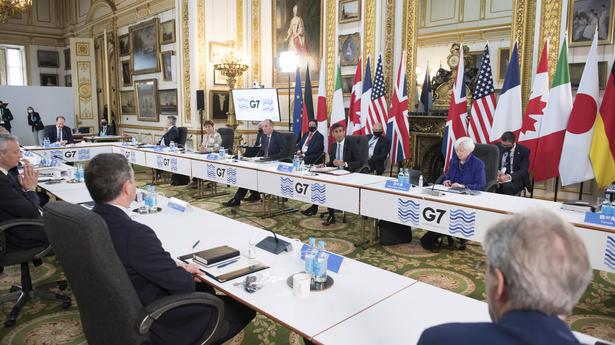
G7 agrees to implement price cap on Russian oil, seeks inputs from all countries
The Hindu
With London being a major global centre for maritime insurance, the plan hinges on denying shipping to oil above the price cap.
London
The group of seven advanced economies (G7) agreed to implement a price cap on oil exports from Russia at a virtual meeting of their Finance Ministers on Friday. The move is aimed at cutting off a source of financing for Moscow as its invasion of Ukraine continues. With London being a major global centre for maritime insurance, the plan hinges on denying shipping to oil above the price cap.
The group confirmed its “joint political intention to finalise and implement a comprehensive prohibition of services which enable maritime transportation of Russian-origin crude oil and petroleum products globally”, according to a joint statement from the G7 Finance Ministers. The actual ceiling price was not announced, with the G7 saying it invites “all countries” to provide input. The initial price cap will be based on a “range of technical inputs” and revisited subsequently as required.
The price cap is being designed, as per the G7, to limit Russia from “profiting from its war of aggression” while limiting the impact on global energy prices. Inflation is already high globally as well as in most of the G7 countries. Those involved in delivering Russian seaborne petroleum and petroleum products will be permitted to provide services if the price is below or at the cap, the statement said.
For the price caps to work, India and China will likely need to be involved, although India has purchased Russian oil at low or discounted prices after the February 24 invasion of Ukraine, with the government defending the move on grounds of national interest. The U.S. has held talks with the government to win support for the oil price caps, including on a visit by U.S. Deputy Treasury Secretary Wally Adeyemo to India at the end of August.
The G7 is aiming to align the timing of the price cap with an EU ban on seaborne imports of crude oil from Russia, that comes into effect on December 5, and a petroleum products embargo that takes effect on February 5.













